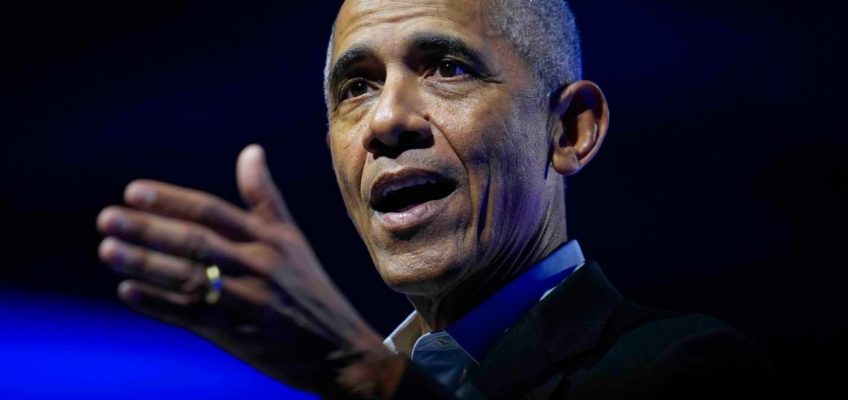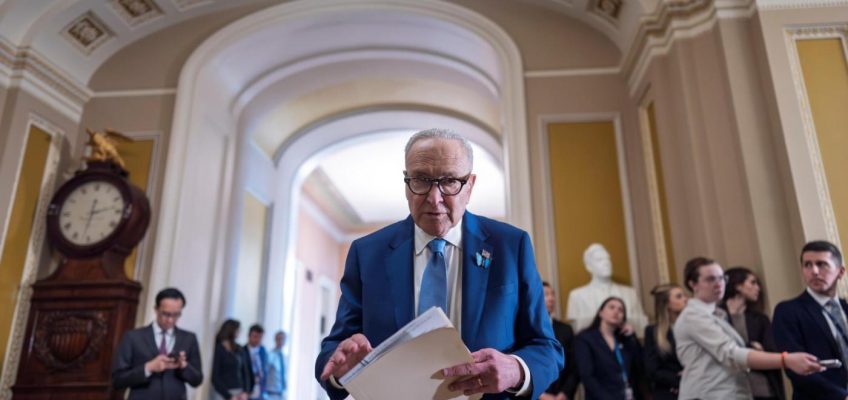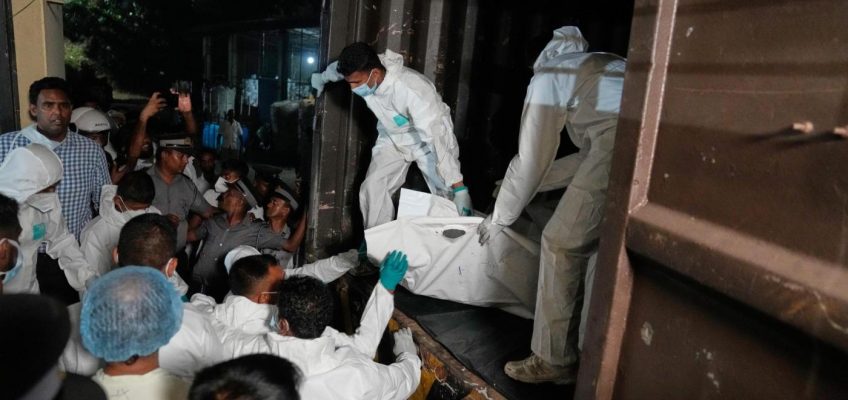By Bella Avila and Sabrina Parys, NerdWallet
Taxes are complicated enough without the added stress of figuring out which tax software will work best for you. While you should get the same refund or bill no matter which provider you choose, tax filing programs typically come at a cost — so there’s a crucial difference between paying for what you’ll use and paying extra for what you don’t need.
We did the research by testing and evaluating four well-known, widely used online tax providers: TurboTax, H&R Block, TaxAct and TaxSlayer. Our review process includes first-hand testing and information collection, focusing on factors that are important to filers: price, ease of use, transparency, tools, tax pro help and customer support.
Prices are updated monthly and are accurate as of Feb. 9, 2026. They are based on information gathered directly from the providers’ websites.
Best for ease of use: TurboTax
TurboTax stands out for its user-friendly features and tools, making it our top pick for ease of use. Working with the software feels like an interview with a tax preparer who knows just what to ask and how best to guide you.
Similar to other providers we review, the free DIY package covers only simple tax situations. This package might only make sense for you if you have W-2 income and want to claim basic tax breaks, such as the child tax credit and the student loan interest deduction.
The paid DIY packages — the Deluxe and Premium tiers — cost more than other tax-prep software we reviewed, but many filers might find the stellar user experience and innovative features justify the price. The Deluxe tier can help filers who itemize or are homeowners, while the Premium is better suited for investors or people with freelance or self-employment income.
FREE
$0 + $0 per state filed.
TurboTax Free Edition supports a simple Form 1040 and no schedules except for the 1-A, earned income tax credit, child tax credit and student loan interest. Roughly 37% of taxpayers are eligible.
PAID PACKAGES
Deluxe$49 + $39 per state.
Itemize and claim several tax deductions and credits. Works well for business income but no expenses.
Premium$99 + $39 per state.
Investment reporting and rental income (Schedules D and E, and K-1s), plus business income, expenses on a Schedule C, home office deductions and features for freelancers.
Access to tax pro support requires upgrading to TurboTax’s Expert Assist packages, which range from $39 to $159, plus state fees of $39 to $49.
Promotion: NerdWallet users can save up to an additional 10% on TurboTax.
Best free tax software: H&R Block
H&R Block is this year’s winner for overall best free tax software. Much like other providers, the free tier is designed to help people with fairly simple tax returns — but we found that the program covered a few more situations than its competitors do, potentially making it usable by more people.
H&R Block’s free version can handle Form 1040, income from wages, limited bank interest, student loan interest (1098-E), auto loan interest, overtime and tip deduction, and limited Schedules 1, 2 and 3 (but you may need to upgrade if you need other forms to complete the schedules).
If you need help with itemized deductions, investing income, freelance or self-employed work, or HSA distributions, you’ll need to upgrade to the Deluxe, Premium or Self-Employed editions.
FREE
$0 + $0 per state filed.
Allows you to file a 1040 plus earned income credit, child tax credit, student loan interest, Schedule 1-A, and limited Schedules 1, 2 and 3, which makes it usable by a lot more people than most other free software packages.
Best for tax pro support: H&R Block
H&R Block is also our top pick for tax pro support in 2026. The company offers users several support options. Its paid packages — the Deluxe, Premium and Self-Employed tiers — include access to unlimited screen sharing and chat support with a pro at no additional cost. This is often something that requires another upgrade with competitor services such as TurboTax. However, it’s worth noting that this support doesn’t include a final review or sign-off of your tax return (if you want to tack that on, it’ll cost extra).
PAID PACKAGES
Deluxe$35 + $37 per state.
Itemize and claim several tax deductions and credits. Works well for business income but no expenses.
Premium$70 + $37 per state.
For investors or rental property owners (Schedules D and E, and K-1s).
Self-Employed$85 + $37 per state.
For small-business owners, freelancers and independent contractors.
All paid packages include unlimited tax pro help and AI Tax Assist.
Promotion: NerdWallet users receive 20% off federal filing costs.
Best for budget filers: TaxSlayer
TaxSlayer takes the cake for the most affordable tax software this filing season. Not only are its paid packages the least expensive of those we review, but the provider shakes up the norm by offering all forms, deductions and credits at its lowest-price tier. The only difference between the paid packages is how much support you get from a tax pro.
Similar to its big-name competitors, TaxSlayer’s free version only supports simple tax situations. If you just need to file a simple 1040 and don’t need to claim any dependents or common tax credits, you may be able to take advantage of the deal. However, TaxSlayer is a bit stricter than its peers in what it considers a “simple tax situation,” with income limits and filing status restrictions in place.
If your tax situation falls outside of these limitations, more confident filers may consider upgrading to the Classic tier, and those who need some extra guidance from a tax pro may consider the Premium tier. TaxSlayer also offers a Self-Employed tier for business owners who need specialized tax help.
FREE
$0 + $0 for one state return.
Allows you to file a 1040 and a state return for free, but only if you have a very simple tax situation: you file jointly or single, your taxable income is $100,000 or less, you don’t claim dependents, you don’t itemize, you didn’t sell stock, have rental income or a business, and you don’t take the earned income tax credit.
PAID PACKAGES
Classic$29.99 + $42.99 per state.
All forms, deductions and credits.
Premium$49.99 + $42.99 per state.
All forms, deductions and credits. Includes Ask a Tax Pro.
Self-Employed$59.99 + $42.99 per state.
Includes all forms, deductions and credits, and tax support from the Premium tier. Includes specialized support for self-employment needs and audit defense.
Promotion: NerdWallet users receive 20% off federal filing costs on Classic, Premium, and Self-Employed packages with the code “Nerd20”.
Competitive tax software to consider: TaxAct
Although TaxAct didn’t win any “best” accolades this year, there’s no denying it’s a good deal. TaxAct is our runner-up for the best tax software for budget filers. Its paid packages are less than those offered by big-name providers like H&R Block and TurboTax. Plus, no matter if you use the free version or paid version of the software, you can get tax pro help through Xpert Assist for an additional fee.
TaxAct’s free version is similar to other providers: it’s only for those with simple tax situations. It’s reserved for filers who are taking the standard deduction and don’t need to claim many deductions or credits. However, it’s worth noting that all other providers we review include a free state return if you qualify for their free tier, but TaxAct charges a $39.99 fee for each state filed.
Like most other providers, TaxAct’s paid packages vary in which forms, deductions and credits they support. People with trickier tax situations — homeowners, investors, small-business owners — may opt for TaxAct’s Deluxe, Premier or Self-Employed tier.
FREE
$0 + $39.99 per state filed.
For dependents and simple filers who need help with college expenses, unemployment or retirement income.
PAID PACKAGES
Deluxe$29.99 + $39.99 per state filed.
This option is ideal for homeowners and those who need to consider child care expenses or certain deductions, credits and adjustments.
Premier$49.99 + $39.99 per state filed.
Premier is good for investors who need to report capital gains and losses and those who have sold a home or own a rental property.
Self-Employed$74.99 + $39.99 per state filed.
This tier is good for freelancers, contractors and small-business owners. Includes access to Schedule C and Schedule F.
Access to tax pro support requires upgrading to Xpert Assist for $25.
Promotion: NerdWallet users get 20% off federal and state filing costs.
Guide to tax software
In the U.S., tax filers often have three options for completing their federal tax returns: (1) file manually by paper, (2) file online using tax software or (3) file through a tax pro, such as a CPA or an enrolled agent.
Tax software helps filers complete and submit their federal and state income tax returns using a DIY program. Due to its convenience and accessibility, it’s by far one of the most popular filing methods.
You can sign up for tax software online via the provider’s website. There may be multiple packages to choose from — but generally, the more complex your taxes are, the more you can expect to pay. The program will then guide you through your federal and/or state taxes by asking a series of interview-style questions that will help it populate tax forms on the backend.
The type of support you can expect will vary from provider to provider. Some packages and programs include access to a tax pro, such as a CPA, should you need it, but these services may require an upgrade or result in additional fees. Once your filing is complete, the program runs a final check and submits your return to the IRS and/or the state tax department.
Quality tax software should also facilitate the refund or payment process between you and the tax entity. This means you can pay your tax bill directly via the software or supply your banking info to the provider to initiate the refund process.
Do I need tax software?
Most filers use either tax software or a tax professional, such as a CPA. Deciding which route makes the most sense for you often comes down to three factors: the complexity of your tax situation, how much help you need and your budget.
“Tax software tries to simplify the language of the tax code for taxpayers,” says Nayo Carter-Gray, CEO and founder of 1st Step Accounting. “But it can still be confusing or overwhelming since it asks a bunch of questions that the average taxpayer may not be familiar with.”
The best software should walk you through the filing process, can handle most tax forms and specialty income, and will tell you whether it’s better to take the standard deduction or itemize, for example.
Carter-Gray, an enrolled agent, says working with a tax pro may be the better option if you’re getting overwhelmed with questions, made a large transaction you’re unsure how to handle, had multiple income streams or various investments — or if you’re simply just seeking more tax planning.
If you already know you want to file on your own but are wondering if you should use software (whether free or paid) or paper forms, that answer is simple. The IRS says e-filing is the easiest, fastest and most efficient
How to choose tax software
If you don’t know what you need, it might help to examine online tax filing providers individually and what sort of services each one offers. Here are a few areas to dig into:
Pricing and fees
How much you pay for tax software is often a function of how complex your taxes are or how much help you need. People with fairly simple situations — such as W-2 income only and very few credits to claim — may be able to take advantage of the “free version” many commercial programs offer. However, state returns may not always be included in these offers. Outside of this, the IRS and other state tax departments also offer free tax filing services, such as IRS Free File.
If you need to itemize, have a lot of investment income, freelance or are self-employed, you’ll need access to more complicated forms, which often means paying for higher-tiered tax prep packages that offer more support and tools. Some packages also come with paid upgrades or separate products that give you access to a tax pro — such as a CPA or an enrolled agent — who can collaborate with you on a return. These add-ons will typically up your total, but people who want to DIY with just a little support might find it worth the price.
User experience
Software that feels like an interview — asking questions about your income and any life events that might allow for deductions — offers more guidance than a basic fill-in-the-blank process. The ability to import forms such as W-2s is better than having to manually type in numbers.
Support options
Most tax software offers a searchable FAQ section or knowledge base, and some offer video tutorials or user forums to help answer questions. Audits are unlikely for most taxpayers, but if you think you’re at risk and want to purchase protection, you should understand what your software provides
Tax pros for assisted help
One important offering in recent years has been one-on-one help from a human tax pro, live on your screen. Depending on the provider, these pros might be able to give you tax advice or review your whole tax return before you file. (This sort of help may come with an extra charge.)
Customer service
Even with the best tax software programs, there’s a chance you might run into a technical issue or need some help as you move along the filing process. If this is important to you, make sure to take a close look at what customer help options are available to you — phone, email, chat or video call — and hours of availability.
Availability of tax forms
If you find a provider that excels in the areas above, you then want to choose the package that covers all of the tax forms and schedules you need. People with simple tax situations may not need anything but a package that covers your basic Form 1040. On the other hand, people with multiple jobs, itemizers, and those with business, investing or rental income will typically need access to additional schedules and forms, which can mean paying for a higher-tiered package.
Bella Avila writes for NerdWallet. Email: bavila@nerdwallet.com.Sabrina Parys writes for NerdWallet. Email: sparys@nerdwallet.com.
The article Best Tax Software of 2026 originally appeared on NerdWallet.




